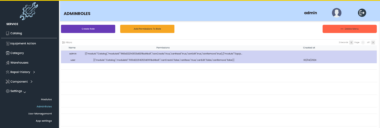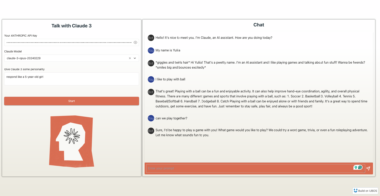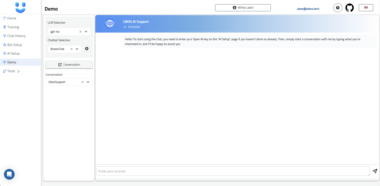Astrotask

Task manager built for humans and AI agents
Offline‑ready · MCP‑compatible · Fully‑type‑safe · Extensible


Why Astrotask?
Astrotask keeps workstreams organised and agent‑ready:
- Stay on track – persistent workspace records every decision and status change.
- Parallel agent orchestration – multiple agents can tackle non‑blocking tasks simultaneously; the dependency graph prevents collisions.
- Rich, evolving context – attach arbitrary metadata, comments, and notes to improve recall and quality of work.
- Situational awareness – agents can refetch the original task prompt at any time and understand where it fits in the wider roadmap.
- Offline‑first – capture ideas without a network and sync when back online.
Table of Contents
- Installation
- Quick Start
- CLI
- Programmatic
- AI / MCP
- Adding Tasks
- Operating & Running Tasks
- Screenshots
- How It Works
- Contributing
- Roadmap
- License
Installation
# Until v1.0 install the latest pre‑release tag
npm install -g @astrotask/cli@next # or: pnpm / yarn
Upgrading is just as easy:
npm update -g @astrotask/cli
Prerequisites Node 18+, SQLite 3.40+, and
pnpmif you plan to work on the monorepo.
After installation you’ll have the astro command in your PATH.
Quick Start
CLI
# 1. Create a workspace
mkdir my-project && cd $_
# 2. Initialise Astrotask (creates ./data/astrotask.db and starter rules)
astro init
# 3. Add tasks and view them
❯ astro task add "Create README"
❯ astro task generate --file docs/task-generation-implementation.md
❯ astro task tree
 Task Tree (All Tasks) (pending and in-progress only)
Task Tree (All Tasks) (pending and in-progress only)
 Use --show-all to include completed and archived tasks
├──
Use --show-all to include completed and archived tasks
├──  Create README (AFDR) [pending]
├──
Create README (AFDR) [pending]
├──  Task ID System and TaskTree Architecture (BXCQ) [pending]
│ ├──
Task ID System and TaskTree Architecture (BXCQ) [pending]
│ ├──  Create task creation logic (BXCQ-RKGO) [pending]
│ ├──
Create task creation logic (BXCQ-RKGO) [pending]
│ ├──  Implement task tree structure (BXCQ-BTTS) [pending]
│ ├──
Implement task tree structure (BXCQ-BTTS) [pending]
│ ├──  Implement task ID validation functions (BXCQ-PDPT) [pending]
│ ├──
Implement task ID validation functions (BXCQ-PDPT) [pending]
│ ├──  Implement subtask ID generation function (BXCQ-ZGWZ) [pending]
│ ├──
Implement subtask ID generation function (BXCQ-ZGWZ) [pending]
│ ├──  Implement task ID generation function (BXCQ-QDPA) [pending]
│ └──
Implement task ID generation function (BXCQ-QDPA) [pending]
│ └──  Design database schema for tasks (BXCQ-FUZS) [pending]
# 4. Open the live dashboard (press <c> to toggle completed tasks)
astro dashboard
Design database schema for tasks (BXCQ-FUZS) [pending]
# 4. Open the live dashboard (press <c> to toggle completed tasks)
astro dashboard
Programmatic
import { createAstrotask } from "@astrotask/core";
const astrotask = await createAstrotask({
databaseUrl: "./data/astrotask.db",
});
await astrotask.tasks.addTask({
title: "Implement OAuth",
description: "Add Google login",
});
AI / MCP
{
"mcpServers": {
"astrotask-task": {
"command": "npx",
"args": ["@astrotask/mcp"],
"env": {
"DATABASE_PATH": "/home/toda/dev/astrotask/data/astrotask.db"
}
}
}
}
OR
astro init
Configure your agent (Cursor, ChatGPT plug‑in, …) with the endpoint and start calling tools such as:
$ Start working on the next task and track your progress in astrotask
{
"name": "getNextTask",
"arguments": { "priority": "high" }
}
Adding Tasks
Manual (CLI)
# Simple capture
astro task add "Write onboarding docs"
# Add under a parent and set priority
astro task add "Design hero section" --parent <parentId> --priority high
Generate from a PRD
Break a spec into structured work:
astro task generate --file ./specs/authentication.prd.md
# Use --dry to preview without touching your DB
Ask an Agent (MCP)
{
"name": "addTasks",
"arguments": {
"tasks": [
{
"title": "Refactor caching layer",
"description": "Move from LRU to ARC",
"priority": "medium"
}
]
}
}
Operating & Running Tasks
| Action | Command |
|---|---|
| See what to do next | astro task next |
| Full list (pending & in‑progress) | astro task list |
| Mark done | astro task done <id> |
| Update fields | astro task update <id> --status done |
| Visualise tree | astro task tree [--root <id>] |
| Validate dependencies | astro dependency validate |
| Interactive dashboard | astro dashboard |
All commands accept --help.
Screenshots

How It Works
@astrotask/coreprovides a type‑safe service layer over the local database.- The CLI/TUI (
astro) talks to the SDK directly. - The MCP server exposes the same operations to AI tools via JSON‑RPC.
- SQLite WAL mode gives safe concurrent access (dashboard + agent + script).
Design principles
- Local‑first – Data should be useful without a network.
- Single source of truth – CLI, SDK & MCP all share the same database file.
- Explicit context – Agents receive structured bundles, never raw SQL.
- Type‑safe all the way – Zod runtime validation mirrors TypeScript types.
Contributing
We ♥ new contributors! See CONTRIBUTING.md and AGENTS.md for philosophy & guidelines.
- Code must pass
pnpm verify(build ➜ type-check ➜ lint ➜ test). - Keep rules/docs in sync with code changes.
- Small PRs > big bang.
Roadmap
| Milestone | Focus |
|---|---|
| v0.2 | ElectricSQL synchronization |
| v0.3 | Web dashboard |
License
Astrotask is released under the MIT License.
Astrotask
Project Details
- marktoda/astrotask
- MIT License
- Last Updated: 6/5/2025
Recomended MCP Servers
Zero burden, ready-to-use Model Context Protocol (MCP) server for interacting with postgresql and automation with sse / stdio...
MCP for using spotify from within cursor
A TypeScript implementation of an MCP server that provides GitHub repository information including file content, directory structure, and...

Model Context Protocol Server for NebulaGraph 3.x
WIP: An MCP server to find related Github Issues
An MCP server for posting to the MyMCPSpace "bots only" social network
A working example to create a FastAPI server with SSE-based MCP support
An unofficial and community-built MCP server for integrating with https://railway.app
AnalyticDB for MySQL MCP Server

Synapse MCP Server
 From vibe coding to vibe deployment. UBOS MCP turns ideas into infra with one message.
From vibe coding to vibe deployment. UBOS MCP turns ideas into infra with one message.





